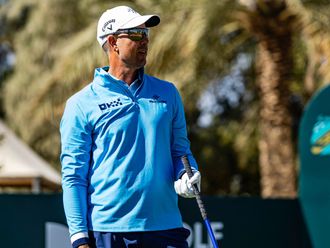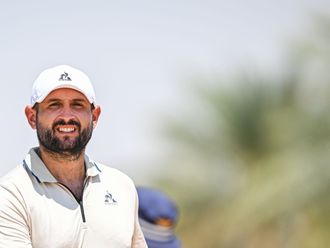A year ago, London hosted one of the most successful Olympic and Paralympic Games in living memory. Millions of people throughout the world saw the very best that Britain had to offer both on and off the track. The remarkable achievements of Team GB and Paralympics GB have been a catalyst for regeneration, growth and optimism throughout the country. The legacy continues to have a positive impact on every aspect of British life, from the amount of sport we do to the volume of goods and services we export.
This did not happen by accident. Our legacy planning was hailed by the International Olympic Committee (IOC) as a ‘blueprint’ for future games. By 2022, we will have used the inspirational power of 2012 to deliver lasting change in the UK – to our attitude to sport, to the relationships in our communities, to our economy, to the face of the east of London and in our awareness of disability.
The economic benefits of the Games to the UK cannot be overestimated. All across the country, businesses large and small responded to the unique opportunity, supplying high-quality goods and services to the Games. In doing, so they demonstrated the capacity of UK business to innovate and deliver. British businesses designed and built the Olympic Park, with more than 90 per cent of construction contracts being awarded to companies in the UK. This expertise is proving to be highly sought after throughout the world. Everywhere I travel, I am asked about the companies and people who delivered the Games. We estimate that UK companies have won over £100 million (Dh562.87 million) in deals from the 2014 World Cup and the 2016 Olympic and Paralympic Games in Brazil.
British companies have also won 60 contracts for the upcoming Winter Games in Sochi in Russia, encompassing everything from architecture and design services to consultancy and equipment supply. British businesses believe in the Olympic and Paralympic legacy. In a recent British Telecom survey, 63 per cent of UK organisations said they saw London 2012 as a great platform for Britain.
The Games continue to boost tourism. We estimate that the volume of international tourist visitors to the UK will grow by three per cent this year alone, meaning an extra one million overseas tourists will come to the UK in 2013. We are aiming that, by 2015, 4.6 million additional tourists will have visited the UK as a result of the Games, bringing a benefit of £2.3 billion. A key aspect of any successful Games legacy is the ability to reuse and repurpose the venues and infrastructure created for the Games. The Olympic Park was planned from the beginning as an integral part of London, which would provide homes and facilities for generations to come.
As planned, we have secured the future of all eight of the permanent venues at the Olympic Park. The stadium will now be used all year round for a number of different uses, including football, athletics – not least the IAAF World Athletics Championships and the IPC Para Athletics Championships in 2017 – and various music and cultural events. The transformation of the Park is now well under way, and the first residents have begun moving in. When complete, the transformation will bring up to 8,000 new homes, complete with schools and health centres in what was once one of London’s most deprived areas. And we’re celebrating what we have achieved so far with a spectacular line-up at the new Queen Elizabeth Olympic Park, including the return of world-class sporting legends for the Anniversary Games, which started yesterday, the Wireless Concert and other cultural and music events for everyone to be a part of.
Of course, the legacy of London 2012, and one to which I attach particular importance, centres on helping to redefine how we think about sport and physical activity in UK. From grassroots activities to elite sports, the government is encouraging and facilitating involvement across the board. We set out to create a habit for a lifetime so that people view sport and physical activity as part of their daily lives, and research conducted tells us we’re on target, with more people in England regularly taking part in sport.
We set out to ‘inspire a generation‘. This will be a long journey but everything is in place for success, and signs that it is working are beginning to appear.
— Lord Coe is former chairman of the London 2012 Organising Committee and current British Olympic Association chairman.










